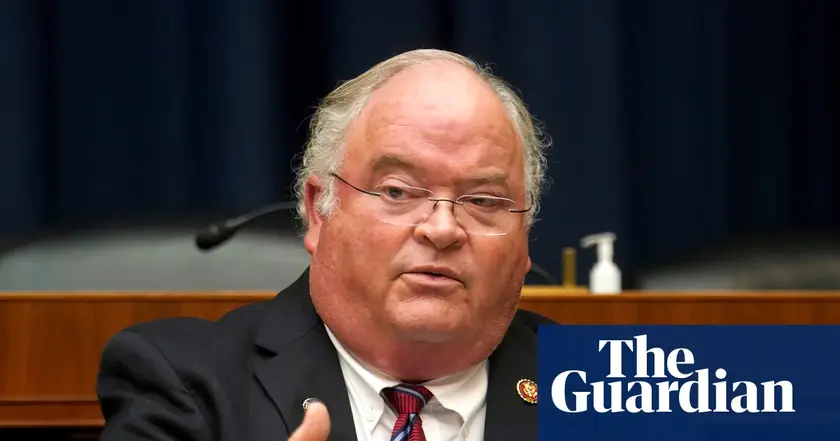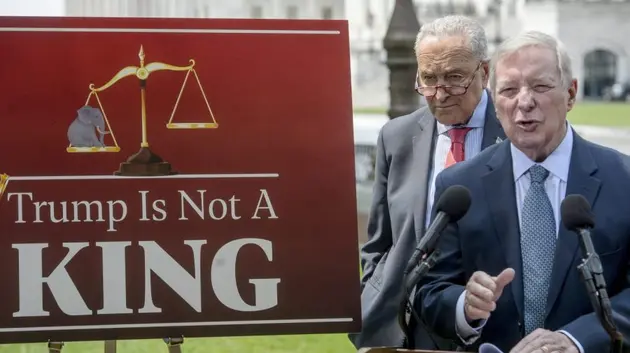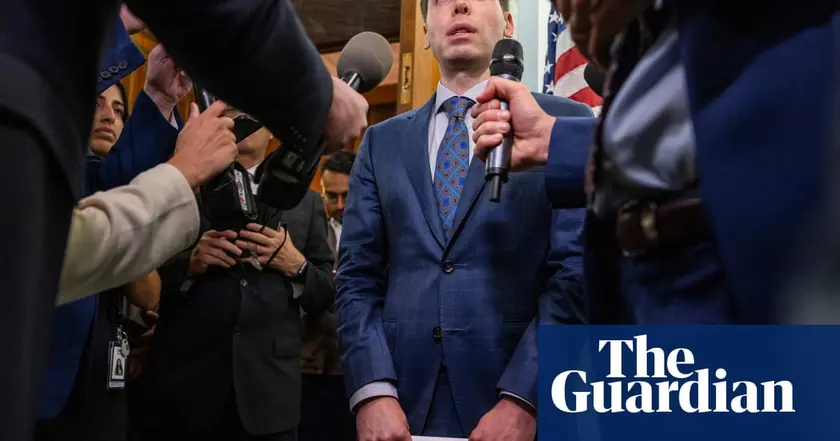T4K3.news
IRS chief ousted over data clash
IRS commissioner Billy Long was removed after a clash over using tax data to locate undocumented immigrants

Trump removed IRS commissioner Billy Long after a clash over using tax data to locate suspected undocumented immigrants.
IRS chief ousted after clash over undocumented immigrant data
The White House removed IRS commissioner Billy Long after about two months on the job, following a clash over whether the agency could crosscheck confidential taxpayer data to help locate people in the country illegally. The report describes DHS sending a list of about 40,000 names to the IRS to verify addresses, with the IRS saying it could verify fewer than 3% and would not release information tied to individuals, citing taxpayer privacy.
Administration officials say everyone is aligned on the mission, even as the White House frames the incident as routine leadership change. Treasury Secretary Scott Bessent will serve as acting commissioner. Long has said he plans to become ambassador to Iceland, while the White House asserts continued commitment to the policy goals behind data sharing. The April data-sharing framework between DHS and the treasury aims to balance privacy protections with enforcement needs, a balance critics say is hard to maintain when politics intrudes on agency function.
Key Takeaways
"Tax data belongs to the people, not political leverage."
Editorial stance on data use in policy
"Privacy rights must set the floor for every data request."
Comment on data privacy safeguards
"Leadership should protect taxpayers first, not public battles."
Call for safeguarding taxpayers amid politics
"When data becomes a baton, trust breaks."
Metaphor about data as a political tool
Long’s departure exposes a broader tension at the intersection of immigration policy and federal data governance. When leadership signals a willingness to use tax data for enforcement, public trust in the IRS can fray. The episode also highlights how quickly political priorities can eclipse routine governance, even in a long‑standing, technocratic agency. If data sharing becomes a political cudgel, taxpayers may doubt that their information is safe or that the IRS acts with independence from partisan aims. The episode prompts a needed scrutiny of where lines should be drawn between enforcement objectives and privacy protections.
Highlights
- Tax data belongs to the people, not political leverage.
- Privacy rights must set the floor for every data request.
- Leadership should protect taxpayers first, not public battles.
- When data becomes a baton, trust breaks.
Data sharing politics risks taxpayer privacy
The clash over using tax data to locate undocumented immigrants highlights political leverage over a federal agency and raises privacy concerns for taxpayers.
The episode frames a larger question about how data and power intersect in federal governance.
Enjoyed this? Let your friends know!
Related News

Trump fires BLS head amid criticism

Sam Altman strengthens his grip on OpenAI

Trump orders firing of labor statistics chief

Texas Governor Abbott threatens Democrats with removal

Tesla's UK sales drop nearly 60 percent

Palantir Strengthens Its Role in Government Contracts

Harvard patents under review and UN envoy appointment

UK government urged to clarify details of OpenAI agreement
